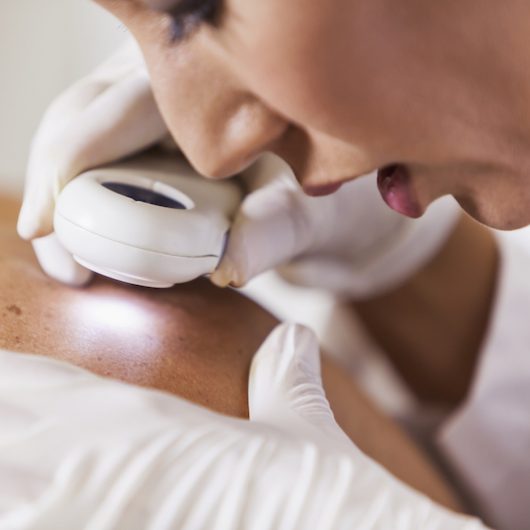Overview of Condition:
Skin cancer is a disease characterized by the abnormal growth of skin cells. Skin cancer is the most common type of cancer worldwide.
Symptoms:
Symptoms of skin cancer can vary depending on the type and stage of the disease. These symptoms include changes in the size, shape, or color of moles or spots on the skin, new growths or sores that do not heal, itching, tenderness, or bleeding in affected areas.
Types:
The three main types of skin cancer are basal cell carcinoma (BCC), squamous cell carcinoma (SCC), and melanoma. BCC and SCC are the most common types and typically develop on areas of the skin exposed to the sun. Melanoma is less common but more aggressive and can develop anywhere on the body, including areas not exposed to the sun.
Causes:
The primary cause of skin cancer is exposure to ultraviolet (UV) radiation from the sun or tanning beds. Other risk factors include a history of sunburns, fair skin, family history of skin cancer, weakened immune system, and exposure to certain chemicals or radiation.
Treatments:
Treatment options for skin cancer depend on the type, stage, and location of the disease. Common treatments include surgical removal of the tumor (excision), Mohs surgery (a specialized technique to remove thin layers of cancerous tissue), radiation therapy, chemotherapy, immunotherapy, and targeted therapy. Early detection and prompt treatment are crucial for the successful management of skin cancer.

